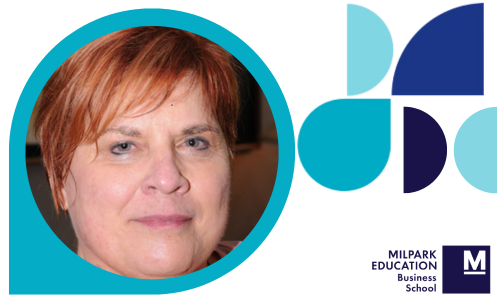
People Management in a Digital Age: Milpark MBA Insights
Effective people management is essential for business success, especially as workplace dynamics rapidly evolve. Milpark’s MBA programme – Africa’s only fully online, AMBA-accredited MBA – has been meticulously updated to equip students with the skills to lead and inspire teams in today’s digital world.
We spoke with Jean Grundling, a seasoned HR consultant and facilitator of Milpark’s MBA People Management module, to explore the updates and how the programme helps develop authentic, successful human-centred leaders.
